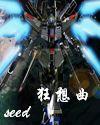tc.redrabbit-第27部分
按键盘上方向键 ← 或 → 可快速上下翻页,按键盘上的 Enter 键可回到本书目录页,按键盘上方向键 ↑ 可回到本页顶部!
————未阅读完?加入书签已便下次继续阅读!
〃That is correct; Captain。〃
Zaitzev nodded; then handed the message blank to Colonel Rozhdestvenskiy for his signature/confirmation。 Everything in KGB had to have a paper trail。 Zaitzev looked down at the checklist。 Message; originator; recipient; encryption method; point of contact。。。 yes; he had everything; and all spaces were properly signed。 He looked up。 〃Colonel; it will go out shortly。 I will call you to confirm transmission time。〃 He would also send a paper record upstairs for the permanent operations files。 He made a final written notation and handed off the carbon copy。
〃Here's the dispatch number。 It will also be the operation…reference number until such time as you change it。〃
〃Thank you; Captain。〃 The colonel took his leave。
Oleg Ivanovich looked again at the wall clock。 Rome was three hours behind Moscow time。 Ten or fifteen minutes for the rezident to clear…text the message…the field people were so clumsy at such things; he knew…and then to think about it; and then。。。? Zaitzev made a small wager with himself。 The Rome rezident would send back a request for clarification。 Sure as hell。 The captain had been sending out messages and getting them back from this man for some years。 Goderenko was a careful man who liked things clear。 So he'd leave the Rome pad in his desk drawer in readiness for the return message。 He counted: 209 characters; including blank spaces and punctuation。 A pity they couldn't do this on one of those new American puters they were playing with upstairs。 But there was no sense wishing for the moon。 Zaitzev pulled out the cipher…pad book from his desk drawer and unnecessarily wrote down its number before walking to the west side of the capacious room。 He knew nearly all of them by number; a product of his chess background; Zaitzev imagined。
〃Pad one…one…five…eight…nine…zero;〃 he told the clerk behind the metal screen; handing off the paper slip。 The clerk; a man of fifty…seven long years; most of them here; walked a few meters to fetch the proper cipher book。 It was a loose…leaf binder; about ten centimeters across by twenty…five high; filled with punched paper pages; probably five hundred or more。 The current page was marked with a plastic tag。
The pages looked like those in a telephone book; until you looked closely and saw that the letters didn't form names in any known language; except by random accident。 There were on average two or three such occurrences per page。 Outside Moscow; on the Outer Ring Road; was the headquarters of Zaitzev's own directorate; the Eighth; the part of KGB tasked with making and breaking codes and ciphers。 On the roof of the building was a highly sensitive antenna which led to a teletype machine。 The receiver that lay between the antenna and the teletype listened in on random atmospheric noise; and the teletype interpreted these 〃signals〃 as dot…dash letters; which the adjacent teletype machine duly printed up。 In fact; several such machines were cross…connected in such a way that the randomness of the atmospheric noise was re…randomized into totally unpredictable gibberish。 From that gibberish were made the one…time pads; which were supposed to be totally random transpositions that no mathematical formula could predict or; therefore; decrypt。 The one…time…pad cipher was universally regarded as the most secure of encryption systems。 That was important; since the Americans were the world leaders at cracking ciphers。 Their 〃Venona〃 project had even promised Soviet ciphers of the late 1940s and '50s; much to the disfort of Zaitzev's parent agency。 The most secure one…time pads were also the most cumbersome and inconvenient; even for experienced hands like Captain Zaitzev。 But that couldn't be helped。 And Andropov himself wanted to know how to get physically close to the Pope。
That's when it hit Zaitzev: Physically close to the Pope。 But why would anyone want that? Surely Yuriy Vladimirovich didn't want anyone to hear his confession。
What was he being asked to transmit?
The Rome rezident; Goderenko; was a highly experienced field officer whose rezidentura operated many Italian and other nationals as agents for the KGB。 He forwarded all manner of information; some overtly important; some merely amusing; though potentially useful in promising otherwise important people with embarrassing foibles。 Was it that only the important had such weaknesses; or did their positions merely allow them to entertain themselves in manners which all men dreamt about but few could indulge in? Whatever the answer; Rome would have to be a good city for it。 City of the Caesars; Zaitzev thought; it ought to be。 He thought of the travel and history books he'd read on the city and the era…classical history in the Soviet Union had some political mentary; but not all that much。 The political spin applied to every single aspect of life was the most tiring intellectual feature of life in his country; often enough to drive a man to drink…which; in the USSR; wasn't all that distant a drive; of course。 Time to go back to work。 He took a cipher wheel from his top drawer。 It vas like a phone dial…you set the letter to be transposed at the top of one dial; then rotated the other to the letter indicated on the page of the transposition pad。 In this case; he was working from the beginning of the twelfth line of page 284。 That reference would be included in the first line of the transmission so that the recipient would know how to get clear text from the transmitted gibberish。
It was laborious despite the use of the cipher wheel。 He had to set the clear…text letter he'd written in the message form; then dial to the transposition letter on the printed page of the cipher…pad book; and write down each individual result。 Each operation required him to set his pencil down; dial; pick up the pencil again; recheck his results…twice in his case…and begin again。 (The cipher clerks; who did nothing else; worked two…handed; a skill Zaitzev had not acquired。) It was beyond tedious; hardly the sort of work designed for someone educated in mathematics。 Like checking spelling tests in a primary school; Zaitzev grumbled to himself。 It took more than six minutes to get it right。 It would have taken less time had he been allowed to have a helper in the process; but that would have violated the rules; and here the rules were adamantine。
Then; with the task done; he had to repeat everything to make sure he hadn't transmitted any garbles; because garbles screwed everything up on both ends of the system; and this way; if they happened; he could blame them on the teletype operators…which everyone did anyway。 Another four and a half minutes confirmed that he hadn't made any errors。 Good。
Zaitzev rose and walked to the other side of the room; through the door into the transmission room。 The noise there was enough to drive a man mad。 The teletypes were of an old design…actually; one had been stolen from Germany in the 1930s…and sounded like machine guns; though without the banging noise of exploding cartridges。 In front of each machine was a uniformed typist…they were all men; each sitting erect like a statue; his hands seemingly affixed to the keyboard in front of him。 They all had ear protection; lest the noise in the room land them in a psychiatric hospital。 Zaitzev walked his message form to the room supervisor; who took the sheet without a word…he wore ear…protectors; too…and walked it to the leftmost typist in the back row。 There; the supervisor clipped it to a vertical board over the keyboard。 At the top of the form was the identifier for the destination。 The typist dialed the proper number; then waited for the warbling sound of the teleprinter at the other end…it had been designed to get past the ear plugs; and it also lit up a yellow light on the teletype machine。 He then typed in the gibberish。
How they did that without going mad; Zaitzev did not understand。 The human mind craved patterns and good sense; but typing TKALNNETPTN required robotic attention to detail and a total denial of humanity。 Some said that the typists were all expert pianists; but that couldn't be true; Zaitzev was sure。 Even the most discordant piano piece had some unifying harmony to it。 But not a one…time…


